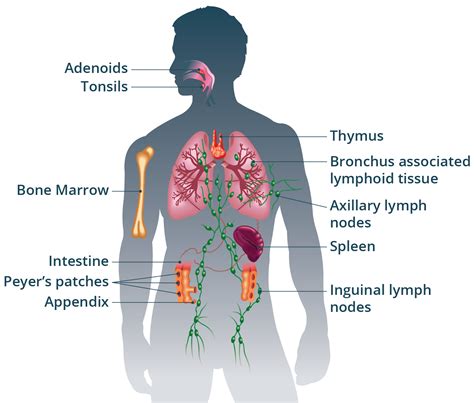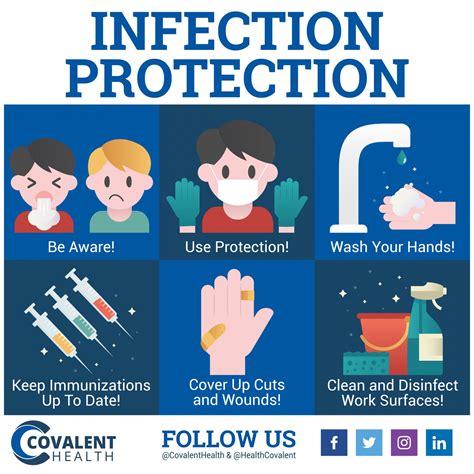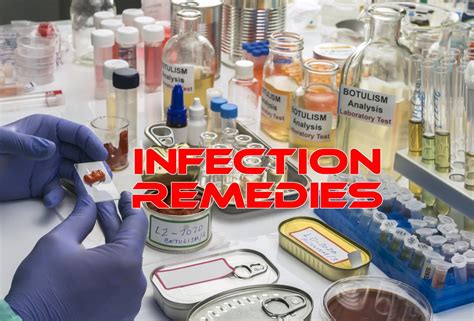Intro
Discover 5 ways to fight infection, boosting immunity with natural remedies, preventing illness, and promoting holistic wellness through antibacterial, antiviral, and anti-inflammatory methods.
Infections can be a major health concern, affecting anyone at any time. They can be caused by a variety of factors, including bacteria, viruses, fungi, and parasites. Understanding how to fight infections is crucial for maintaining good health and preventing the spread of diseases. In this article, we will explore the various ways to combat infections and promote overall well-being.
The importance of fighting infections cannot be overstated. Infections can lead to serious health complications, especially in individuals with weakened immune systems, such as the elderly, young children, and people with chronic illnesses. Furthermore, the overuse and misuse of antibiotics have led to the emergence of antibiotic-resistant bacteria, making it even more challenging to treat infections. Therefore, it is essential to adopt a comprehensive approach to preventing and treating infections.
Fighting infections requires a combination of lifestyle changes, preventive measures, and medical interventions. By adopting healthy habits, such as practicing good hygiene, getting vaccinated, and eating a balanced diet, individuals can significantly reduce their risk of contracting infections. Additionally, being aware of the signs and symptoms of infections and seeking medical attention promptly can help prevent complications and promote effective treatment.
Understanding the Immune System

How the Immune System Works
The immune system works by recognizing and responding to pathogens. When a pathogen enters the body, it is recognized by immune cells, such as macrophages and dendritic cells, which trigger an immune response. This response involves the activation of various immune cells, including T cells and B cells, which work together to eliminate the pathogen. The immune system also has a memory function, which allows it to remember specific pathogens and mount a rapid response if they enter the body again.Preventing Infections

- Practicing good hygiene, such as washing hands regularly and avoiding close contact with people who are sick
- Getting vaccinated against infectious diseases, such as flu and pneumonia
- Eating a balanced diet that is rich in fruits, vegetables, and whole grains
- Avoiding sharing personal items, such as towels and utensils
- Getting enough sleep and managing stress
Vaccination and Infection Prevention
Vaccination is one of the most effective ways to prevent infections. Vaccines work by introducing a small, harmless piece of a pathogen to the body, which triggers an immune response and provides long-lasting protection. Vaccines are available for a variety of infectious diseases, including measles, mumps, and rubella, as well as flu and pneumonia.Treating Infections

Antibiotic Resistance and Infection Treatment
Antibiotic resistance is a major concern in the treatment of infections. The overuse and misuse of antibiotics have led to the emergence of antibiotic-resistant bacteria, making it challenging to treat infections. To combat antibiotic resistance, it is essential to use antibiotics judiciously and only when necessary. Additionally, researchers are working to develop new antibiotics and alternative treatments for infections.Boosting the Immune System

- Eating a balanced diet that is rich in fruits, vegetables, and whole grains
- Getting enough sleep and managing stress
- Exercising regularly
- Avoiding smoking and excessive alcohol consumption
- Getting enough vitamin D and other essential nutrients
Nutrition and Immune Function
Nutrition plays a vital role in immune function. A diet that is rich in essential nutrients, such as vitamin C, vitamin D, and zinc, can help support immune function and prevent infections. Additionally, certain foods, such as garlic and ginger, have antimicrobial properties that can help combat infections.Managing Chronic Infections

Chronic Infection and Mental Health
Chronic infections can have a significant impact on mental health. The stress and anxiety of living with a chronic infection can lead to depression, anxiety, and other mental health concerns. To manage the mental health impacts of chronic infections, it is essential to seek support from mental health professionals and support groups.Future Directions in Infection Prevention and Treatment

Emerging Trends in Infection Prevention
Emerging trends in infection prevention include the use of artificial intelligence and machine learning to predict and prevent infections. Additionally, the development of new diagnostic tools, such as rapid diagnostic tests, is expected to improve the diagnosis and treatment of infections.What are the most common types of infections?
+The most common types of infections include respiratory tract infections, urinary tract infections, and skin infections.
How can I prevent infections?
+You can prevent infections by practicing good hygiene, getting vaccinated, eating a balanced diet, and avoiding close contact with people who are sick.
What are the symptoms of an infection?
+The symptoms of an infection can vary depending on the type and severity of the infection, but common symptoms include fever, chills, and fatigue.
How are infections treated?
+Infections are treated with antibiotics, antiviral medications, or other medications, depending on the type and severity of the infection.
Can infections be prevented with lifestyle changes?
+Yes, infections can be prevented with lifestyle changes, such as practicing good hygiene, getting enough sleep, and eating a balanced diet.
In conclusion, fighting infections requires a comprehensive approach that involves lifestyle changes, preventive measures, and medical interventions. By understanding the immune system, preventing infections, treating infections, boosting the immune system, managing chronic infections, and staying informed about the latest developments in infection prevention and treatment, individuals can significantly reduce their risk of contracting infections and promote overall well-being. We invite you to share your thoughts and experiences on this topic and to take action to protect yourself and your loved ones from infections.
